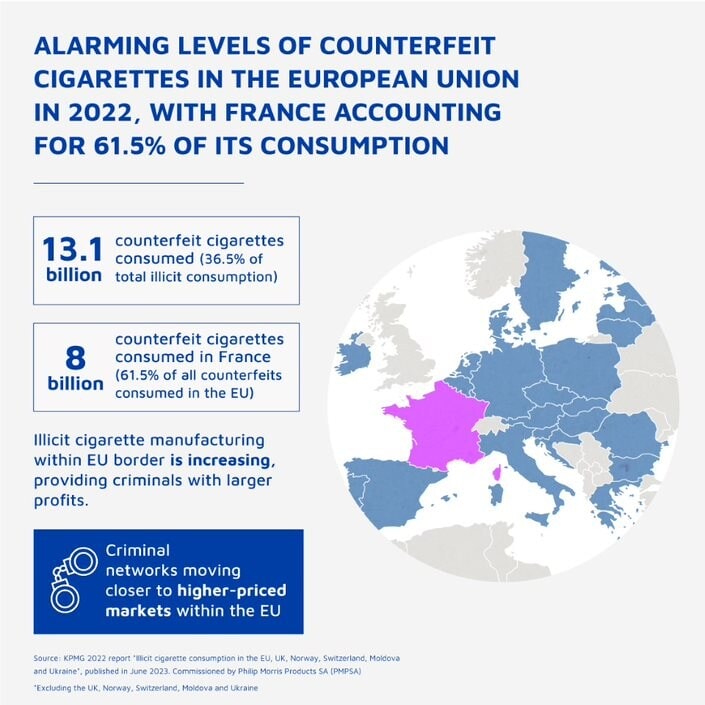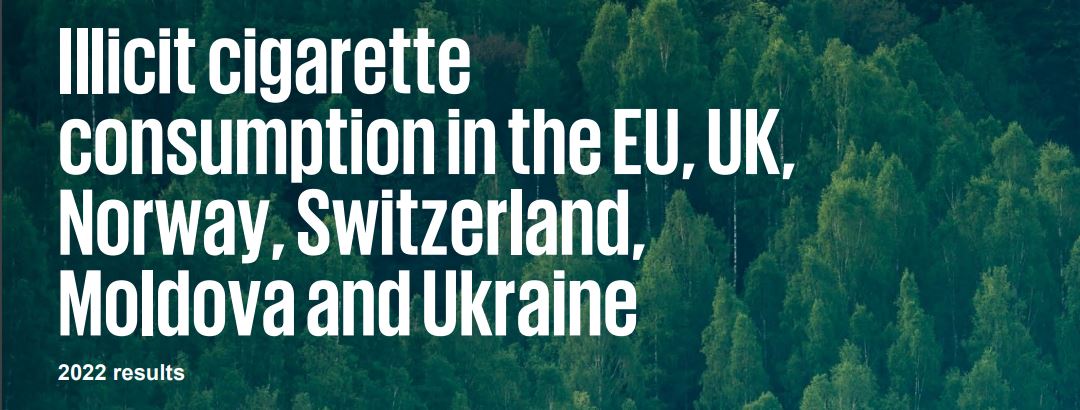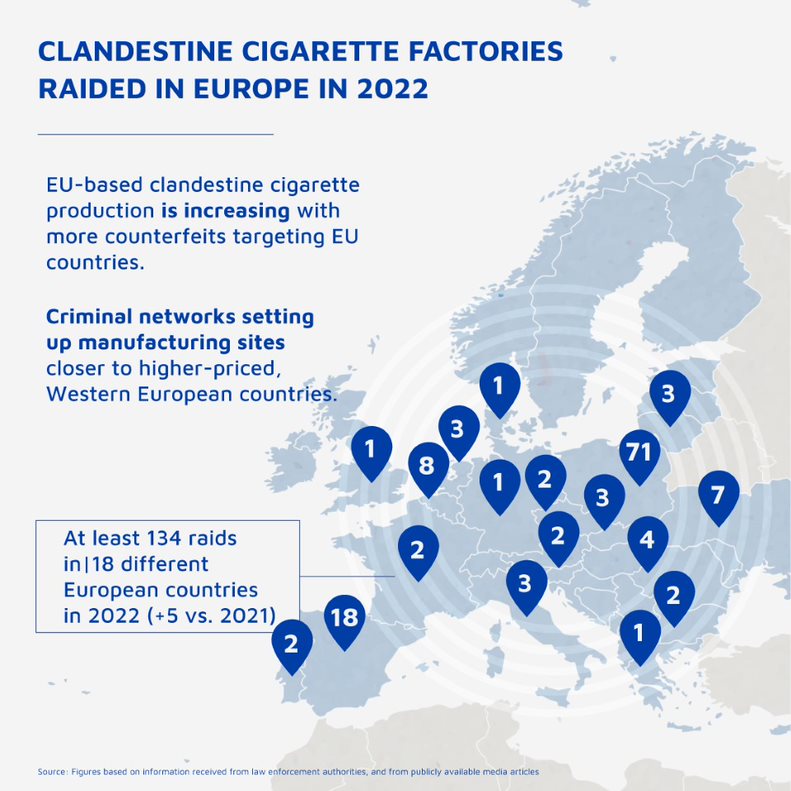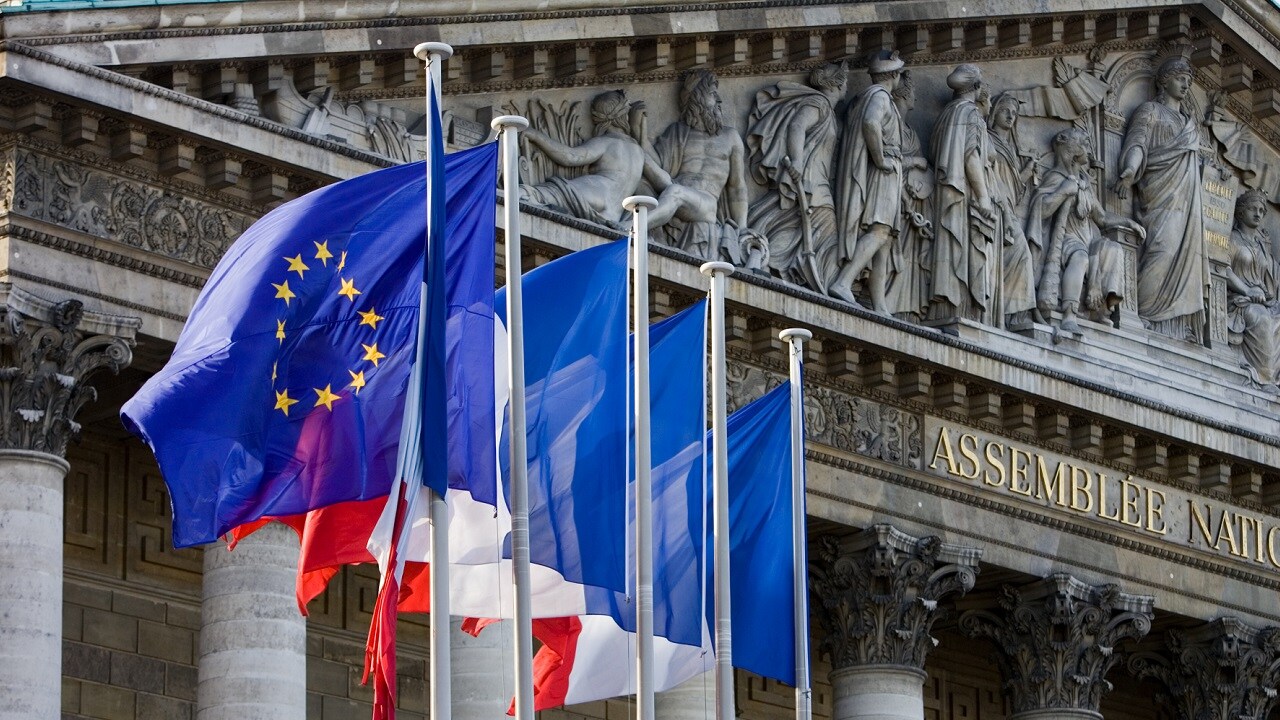A recent study conducted by KPMG has shed light on the concerning growth of the illicit cigarette market in the EU, U.K., Norway, Switzerland, Moldova, and Ukraine.
This annual study has unveiled alarming levels of illicit cigarettes in the European Union in 2022, particularly in France.
Disturbing presence of illicit cigarettes
According to the research, volumes of illicit cigarettes in the EU remained high in 2022, with France alone accounting for almost 50 percent of the total illicit cigarette consumption in the EU.
Of particular concern is the continued, significant rise in counterfeit cigarettes, which escalated by 6.2 percent in 2022, reaching 13.1 billion cigarettes. This now accounts for 36.5 percent of the EU’s total illicit cigarette consumption, marking the highest-ever recorded share and volume to date.
For the first time, Moldova and Ukraine were included in the KPMG report. The 2022 findings placed Ukraine as the second-largest market in Europe for illicit cigarette consumption, with 7.4 billion illicit cigarettes. The share of illicit cigarettes in Ukraine has followed an increasing trend since 2018; in 2022, one out of five cigarettes consumed came from the illicit market.

Almost two-thirds of counterfeit cigarettes in the EU were consumed in France
France remains the largest market for illicit cigarettes in Europe. The French alone consumed an astonishing 16.9 billion illicit cigarettes in 2022, resulting in an estimated loss of €7.3 billion in tax revenues.
Counterfeit remains the main component of the illicit consumption in France, making it the country where the vast majority of counterfeits (61.5 percent) in the EU were consumed.
Although most counterfeit cigarettes are smuggled into the country, their production within EU borders is increasing—with criminal networks centering their activities toward higher-taxed and higher-priced EU member states, providing criminals with larger profits.
In 2022, over 134 counterfeit manufacturing facilities were dismantled in 18 European countries by law enforcement.

Shift in illicit manufacturing sites
Law enforcement sources report a shift in tactics by organized criminal groups, setting up industrial scale, clandestine production facilities within the EU region. This shift became evident during the Covid-19 pandemic when travel and border restrictions were imposed.
Criminal networks adapted by focusing on manufacturing counterfeit cigarettes within the EU instead of smuggling illicit products from elsewhere.
These criminals strategically produce counterfeit cigarettes of premium brands for sale in higher-priced Western European markets, such as France, aiming to maximize their profit margins.
Gregoire Verdeaux, Senior Vice President of External Affairs at Philip Morris International*, states: “It has truly become a ‘made in the EU’ problem, as fake cigarettes are being manufactured, distributed, sold, and consumed in countries within the EU, undermining efforts to reduce and eliminate cigarette smoking—and public health goals altogether.”

Innovative regulatory approaches
Despite the overall increase in illicit consumption, the KPMG study notes that the majority of EU member states experienced a stable or declining share of illicit cigarette consumption in 2022.
Verdeaux added that some of these countries have “adopted reasonable tax levels or have recently implemented an innovative set of measures to counter illicit trade while deterring cigarette consumption. The combination of fiscal calendars with stringent penalties against criminals—as well as impactful enforcement of the rule of law—is helping to make a difference against illicit trade.”
In Poland and Romania, for instance, these policies have helped curb illicit trade. These countries have also witnessed the lowest-ever incidence of illicit consumption since KPMG began conducting its annual studies.
Other governments should follow suit, embracing novel forms of tobacco control and deterrent measures that can help reduce smoking prevalence while tackling illicit trade. By doing so, they can protect consumers, prevent tax revenue losses, and work towards achieving public health goals.
The findings of the KPMG report are available to read in full here.
*Gregoire Verdeaux left PMI in April 2024.


-(1).png)